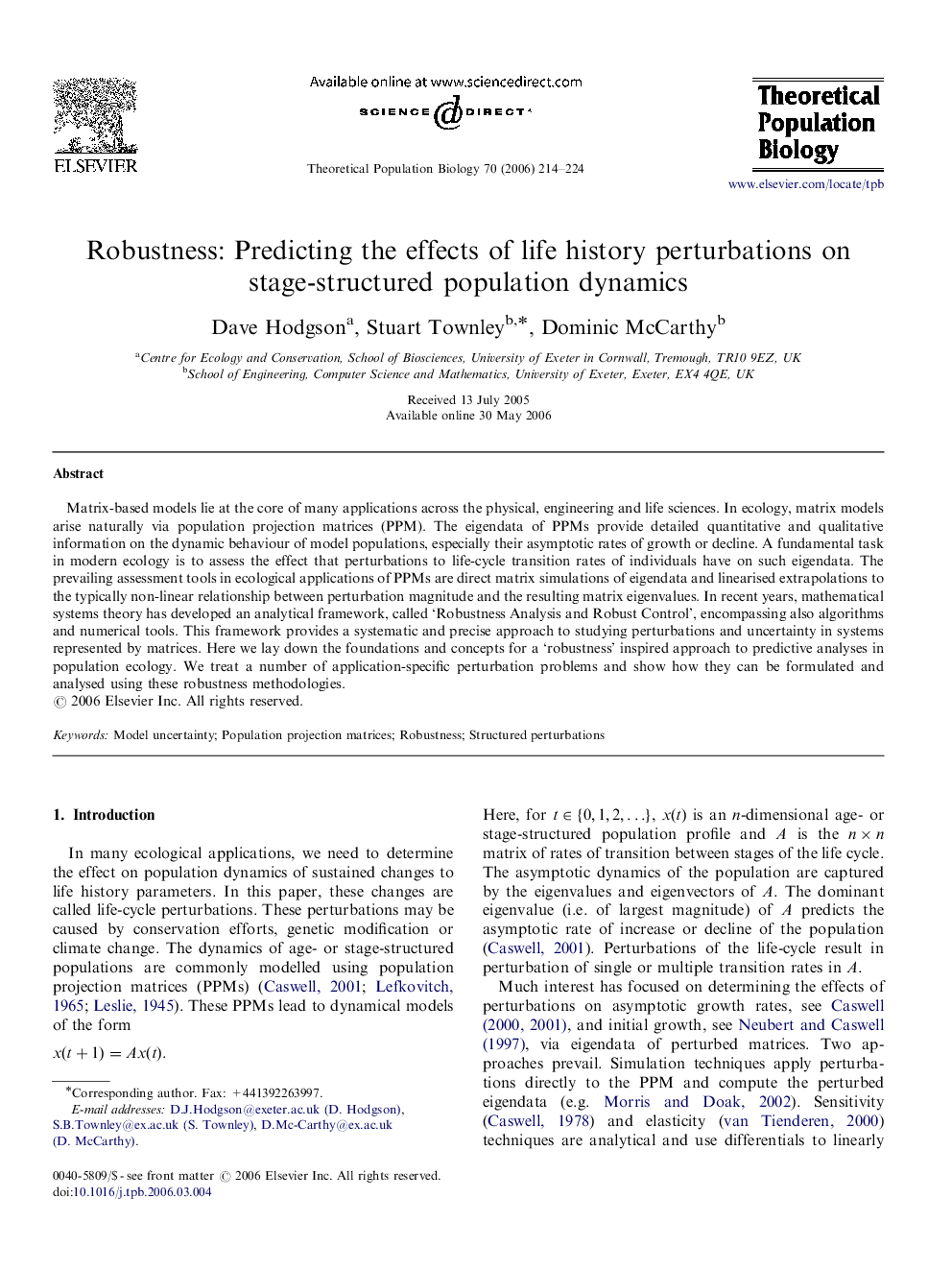| Article ID | Journal | Published Year | Pages | File Type |
|---|---|---|---|---|
| 4503016 | Theoretical Population Biology | 2006 | 11 Pages |
Matrix-based models lie at the core of many applications across the physical, engineering and life sciences. In ecology, matrix models arise naturally via population projection matrices (PPM). The eigendata of PPMs provide detailed quantitative and qualitative information on the dynamic behaviour of model populations, especially their asymptotic rates of growth or decline. A fundamental task in modern ecology is to assess the effect that perturbations to life-cycle transition rates of individuals have on such eigendata. The prevailing assessment tools in ecological applications of PPMs are direct matrix simulations of eigendata and linearised extrapolations to the typically non-linear relationship between perturbation magnitude and the resulting matrix eigenvalues. In recent years, mathematical systems theory has developed an analytical framework, called ‘Robustness Analysis and Robust Control’, encompassing also algorithms and numerical tools. This framework provides a systematic and precise approach to studying perturbations and uncertainty in systems represented by matrices. Here we lay down the foundations and concepts for a ‘robustness’ inspired approach to predictive analyses in population ecology. We treat a number of application-specific perturbation problems and show how they can be formulated and analysed using these robustness methodologies.
